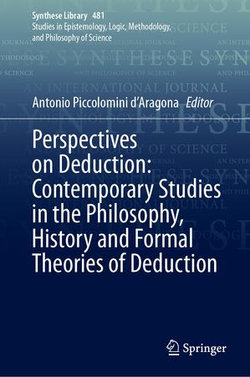This book provides philosophers and logicians with a broad spectrum of views on contemporary research on the problem of deduction, its justification and explanation. The variety of distinct approaches exemplified by the single chapters allows for a dialogue between perspectives that, usually, barely communicate with each other.
The contributions concern (in a possibly intertwined way) three major perspectives in logic: philosophical, historical, formal. The philosophical perspective has to do with the relationship between deductive validity and truth, and questions the alleged conclusiveness of deduction and its epistemic contribution. It also discusses the role of linguistic acts in deductive practice, and provides a cognitive-didactic contribution on how we may learn through deduction. In the historical perspective, the contributions discuss the ideas of some major historical figures, such as Bolzano, Girard, Gödel, and Peano. Finally, in the formal perspective, the mathematics of deduction is dealt with mainly from an intuitionistic-constructivist or proof-theoretic point of view, with focus on “ecumenic” or internalistic approaches to logical validity, on the nature and identity of proofs, and on dialogical setups.
Chapter [14] is available open access under a Creative Commons Attribution 4.0 International License via link.springer.com.



Share This eBook: